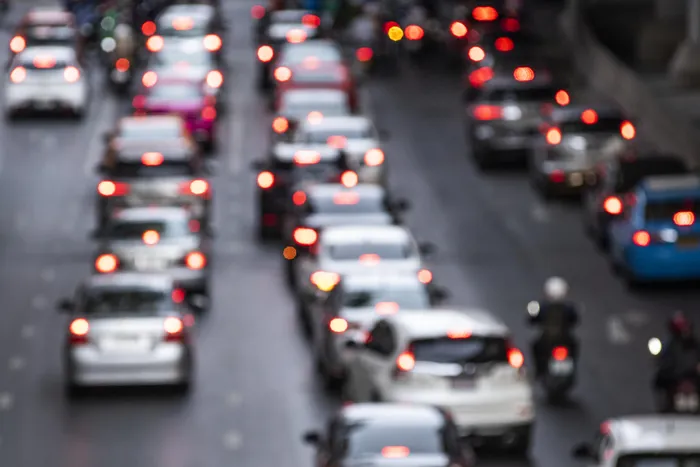Cape Town traffic: Uncovering the mental health toll of daily commuting
MENTAL HEALTH AWARENESS

Studies show individuals who spend extended periods in traffic experience elevated levels of stress, anxiety, frustration, irritability, nervous tension, and an overall decline in wellbeing.
Image: Freepik
I often drive against traffic – lucky me – but as someone who once sat in it daily, I can honestly say that sitting in Cape Town traffic for hours en route to Strand or Somerset West is not child’s play.
That clutch control has you in a chokehold, although, yes, it builds the glutes and there’s only so many times you can listen to “Party Rock Anthem” on the N2 before it becomes your personal horror soundtrack.
Let’s be honest. Cape Town’s traffic situation is out of hand. According to the 2024 TomTom Traffic Index, the city ranks 85th globally in congestion, with an average congestion level of 36% - a 3% increase from the previous year.
During rush hour, the average time to travel 10 km in the metro area is 28 minutes and 20 seconds, with an average speed of 21.2 km/h and a congestion level of 60%.
In the 2023 TomTom Traffic Index, the city ranks as the most congested in South Africa, with drivers spending an average of 74 hours a year stuck in peak-time traffic.
Now imagine being one of the unlucky ones crawling along the N1, N2, or the ever-chaotic R300 during rush hour. Four hours a day? That’s practically a part-time job and not the kind that pays.
Johannesburg is often close behind Cape Town in congestion levels, but Cape Town has consistently ranked highest in recent years.
Cape Town’s road infrastructure challenges and urban sprawl contribute heavily to the bottlenecks, particularly on the N1, N2, and R300.

Cape Town is now the most congested city in South Africa, with drivers losing an average of 74 hours a year in traffic.
Image: Freepik
But beyond the wasted time and the rising petrol bill, we’re not talking enough about how this grind affects our mental health. Long hours in traffic are linked to increased stress, anxiety, and even depression. You get home absolutely shattered, no energy for your partner, your children, or even yourself.
A study from UCT has shown that chronic exposure to heavy traffic can lead to irritability, poor sleep, and emotional detachment.
Now add load shedding and potholes to the mix, and you have a recipe for burnout.
And let’s not forget relationships. How are you meant to be emotionally present when your daily routine includes suppressing road rage and trying not to cry in the car?
We spoke to Dr Melané van Zyl, a member of the South African Society of Psychiatrists, to unpack the long-term mental and physical effects of daily commuting, especially for those stuck in traffic for hours on end.
“There are studies that show individuals who spend extended periods in traffic experience elevated levels of stress, anxiety, frustration, irritability, nervous tension, and an overall decline in wellbeing and life satisfaction,” explains Dr van Zyl.
She adds that many drivers also feel a deep sense of helplessness and a lack of control, particularly in the mornings when there’s pressure to be somewhere on time.

Many drivers feel a deep sense of helplessness and a lack of control, particularly in the mornings when there’s pressure to be somewhere on time.
Image: Freepik
“This anticipation and the anxiety before the commute even begins can wear people down. Over time, it contributes to more serious mental health issues, including mood and anxiety disorders.”
And it’s not just the mind that suffers. “Chronic stress from commuting can also lead to physical health problems like high blood pressure, chronic fatigue, and burnout.”
“In my experience, people become more irritable, emotionally reactive, withdrawn, and quick to snap. These shifts in behaviour often spill over into personal relationships,” she says.
Miscommunication becomes more common. “People may misinterpret what their partner or family member is saying because they feel unsupported even when support is actually being offered. The constant pressure and stress of commuting makes it harder to connect emotionally at home.”
Van Zyl recommends turning the commute into a time for calm rather than chaos.
“Practise mindfulness techniques such as focused breathing, gratitude exercises, or visualisation while sitting in traffic. Shift your perspective, use the time as an opportunity for solitude and reflection.”
“There are real mental and physical health consequences linked to long commutes, and it’s something employers and urban developers should take seriously.”
Van Zyl suggests that employers can ease the burden by offering flexible work arrangements, including the option to work remotely.
“Companies should also ensure mental health resources like counselling are available, and that they foster a genuinely supportive culture for employees who face long travel times each day.”
Until structural changes come, though, the daily crawl continues. So next time you're bumper-to-bumper on the N2, maybe take a breath, literally, and try turning your commute into a moment of calm.
Goodluck.
Cape Argus
